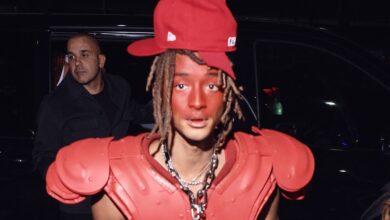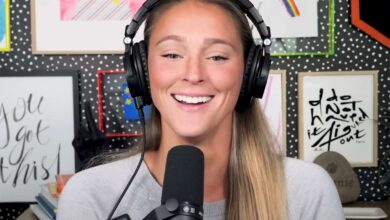Girl Becomes Doctor After Mom’s Failed LASIK Surgery (Exclusive)
:max_bytes(150000):strip_icc():format(jpeg)/Julianna-Dolinski-100125-1-8bf817a33a14454a94d39a102cd4cb47.jpg)
NEED TO KNOW
- Julianna Dolinski was just 2 years old when her mom underwent LASIK surgery
- Instead of seeing clearly afterward, her mom developed a rare complication, leaving her corneas irregular and her eyesight worse than before
- This experience, and how it changed her mother’s life, prompted Julianna to pursue a specific career path
Julianna Dolinski was just 2 years old when her mom, Barbara, underwent LASIK surgery — a procedure meant to improve vision. Instead of seeing clearly afterward, her mom developed a rare complication called post-LASIK ectasia, leaving her corneas irregular and her eyesight worse than before.
Doctors told her there was nothing they could do. Her mom’s dome-shaped corneas had developed multiple bumps, each requiring a new prescription. The diagnosis was devastating: she couldn’t work and struggled to care for Julianna and her older sister, who was just 4 at the time.
During a visit to an optometrist in New York City, her mom broke down in the chair. The doctor reassured her they would do everything possible to help, and eventually developed a system allowing her to wear two pairs of contacts at once. She’s been using that prescription ever since, achieving 20/20 vision.
Courtesy of Julianna Dolinski
Years later, while attending college on the pre-med track, Julianna had her own appointment with that same optometrist — and a moment of clarity hit her. She realized she wanted to follow in the doctor’s footsteps and help patients the way her mom had been helped.
“I looked around the room, and I was like, wait, like what’s optometry like? I’ve always wondered what she was looking at in my eyes with that microscope and what reading the letters meant,” Julianna recalls. She immediately asked if she could shadow the doctor — and the answer was yes.
Courtesy of Julianna Dolinski
She called her mom right after the appointment. “I was like, ‘This seems like something cool, and I’ve watched you go through this my whole life,’ ” Julianna says. “She lit up over the phone. I could feel her excitement.”
Shadowing soon turned into hands-on work. Julianna helped with pretesting and after-testing patients, and she quickly realized this was her calling. She went on to optometry school, and after graduating, the office offered her a job as a doctor.
“When I made the switch and decided to go to optometry school — which is a four-year program after undergrad — I learned I could do primary care vision and specialties like specialty contacts, dry eye and myopia management. But I don’t do surgery or lasers myself,” she says.
“It’s been a full-circle story,” Julianna adds. “I could tell that after all the struggle she went through, in my mom’s mind, it was almost worth it because of what it did for me, my career and my passions.”
“We were always close growing up, but it just expanded to a whole new level,” she continues. “I found passion in something unfortunate that happened to her — not only to help her more, but to help other people going through something similar.”
Recently, Julianna shared the full-circle story on TikTok, and to her surprise, it went viral, racking up over 1.2 million views and 2,000 comments.
She says it’s been heartwarming to see the comment section become a forum for people with similar experiences. “Looking back, within my own family, it felt isolating for a long time until my mom found her solution,” she says. “Now my TikTok is a place for people to connect and talk about what their options are.”
Courtesy of Julianna Dolinski
Now, as Julianna looks forward to her career, she shares insight into her approach to patient care:
“Everyone in my chair is treated as the individual they are,” she says. “I want to hear about your goals, your life, how you spend your day, how your family is and what I can do in this room to best help your vision.”
“I’ve gotten the question a lot now: if I recommend LASIK or what my thoughts on LASIK are,” she adds. “As a doctor, I have to remain unbiased. What my mom experienced was a really rare side effect, but that doesn’t mean it won’t be a conversation with my patients about potential risks and options, whether they choose to have it or not.”
“Sometimes as a doctor, you just need to listen, don’t rush anyone into a decision, encourage research and be there to answer questions as thoroughly as possible,” she says.
Credit to Nypost AND Peoples



